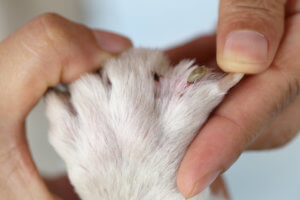Posts
Is your pet holiday ready?
/in Cat Care, Dog Care, News, Traveling /by sumHillPreparing for the holidays can be stressful- to help make things easier for you Dr Lydia has put together a checklist to ensure you don’t need to have that last minute emergency visit to the vet!
Print a copy of the checklist below and take some time to go through it – if you notice there are some things you aren’t sure about please feel free to call us on 9797 2555 so we can make sure you and your pet have a fun and safe holiday!
My cat is missing
/in Cat Care, Dog Care, News /by sumHillWe have put together a guide to help owners with lost cats. Whilst it is not a guaranteed way to find your missing cat, we have found that a lot of these tips have had some success.
A lost cat is one of the most heartbreaking things a pet owner can experience. Unfortunately having an outdoor cat will always carry the risk of kitty not returning home and going missing regardless of what precautions you take (a safety-release collar with your phone number is aways a good idea to have on an outdoor cat).
Having a completely indoor cat does not also guarantee that your cat may never go missing – indoor cats are still prone to running out of an open window or door! For most cases, particularly for indoor cats, the missing cat is hiding somewhere very close to home so it is a good idea to regularly do a scan of your immediate area (look under nooks and crannies and other small places where your cat may have become trapped)
Tips to help find your cat:

An example of a ‘Missing Flyer’ used by one of our staff members who was luckily enough to have been reunited with her missing cat after more than a month!
These tips are based on real success stories (the sooner you are able to carry out the suggestions the higher your chance of finding your cat).
- Set up a litter tray with some used litter from your cat around the entry points of your home.
- Set up a food bowl with your cat’s favourite treats (preferably ones with a strong scent such as roast chicken or sardines) around your home.
- Rent a humane cat trapper from your local vet or purchase one from Bunnings. Set up the trapper near your home and cover it with your cat’s towel/blanket and bait it your cat’s favourite food (again try to use foods with strong scents). It is important you check the trapper at least twice a day to ensure you don’t accidentally catch someone else’s cat! And also to change the food regularly.
- Print as many Missing flyers as you can and drop them in your neighbours’ mailboxes (try to cover as many houses as possible, a block is a good minimum)
- Put up as many Missing Flyers as you can on telephone poles (again around your block is a good minimum). You may find some people tearing them down, it is important to keep putting them up again to gain as much visible coverage as possible.
- Post about your missing cat on as many Facebook Lost Pet Groups as possible.
- Go out late in the night when it is most quiet with roast chicken and call out for your cat.
- Call your usual vet and notify them of your lost cat, ask them to change your cat’s microchip status from ‘home’ to ‘missing’.
- Call all your local vets to notify them of your lost cat and provide them with a detailed description as well as your contact details.
- Contact your local pounds to notify them of your lost cat in case it has been impounded (which is usually the case if not chipped)

There are cases of people being reunited with pets that have been missing for more than a year!
Whilst it is easy to lose hope of ever seeing your cat again it is important to remember to not give up. Our own staff member Beatrice had found her lost cat after more than a month of searching, she followed all of the points we have provided and her eventual success was the result of a letter box drop.
We also post ‘Missing Cat’ posters on our clinic window and on our Facebook page so please feel free to email us your flyers if your cat is missing.
Once you do find your cat make sure you book a visit to your usual vet ASAP for a general heath check.
Tick Season
/in Cat Care, Dog Care, News, Vet Clinic /by sumHillWe had our first paralysis tick patient last week. A little poodle had just returned from a trip to the bush when his owner noticed a paralysis tick on his ear!

Ticks aren’t always immediately visibly, they can be in hidden places such as in between your pet’s toes.
His owner was vigilant and kept up to date with his flea and worming treatment however not all flea products protect against ticks. Luckily his mum did the right thing and brought him to us straight away with the tick she managed to pull off for identification.
We have also had a couple of clients report to us that they have seen ticks around their yards! Warmer weather is definitely tick season and if you plan on going to any bush area with your four-legged friend it is important to confirm that the parasite protection you are using includes ticks.
Cats are also susceptible to ticks so be cautious if your feline goes outdoors or in particular has access to overgrown, leafy areas.
We stock a couple of products that protect cats and dogs against ticks so if you have any doubts feel free to drop by our clinic or call us for a chat.
If you would like more information on ticks, what symptoms to look out for in particular and what to do you can read on here
Stress Free Cat Visits
/in Cat Care, News, Uncategorized, Vet Clinic /by sumHillDo you want your fur-baby to have the most stress free visit at the vet? We definitely do!

A common sign of a ‘flipped lid’. Claws are usually out!
A few weeks ago the team here at Summer Hill Village Vet were lucky enough to have Tracy from VetPrac deliver an enlightening training session on cat behaviour. Vets, nurses and receptionists learnt more about how to keep your fur babies as stress-free and relaxed as possible – from the moment they walk in, through to consultation and handling as well as housing for longer stays in our hospital. She taught us some great distraction techniques, so don’t worry if you see one of our vets pull out an ice-cream cone full of anchovy paste during consult!
There are also good anti-anxiety medications that we’ve been trialling for a while now that can really help cats (& dogs) start off on the right paw at their visits.

‘Burrito Cat’ – a wrapping ‘art’ we tend to use to comfortably restrain the crankier kitties
We also learnt that once a cat has ‘flipped it’s lid’ (lets be real, all cat owners know exactly what this means) there is no going back. Essentially the cat is in fight, flight or freeze mode and once this happens it can take up to 24 hours before they can fully relax again. We certainly don’t want this for any of our patients. This is why you may notice us doing more handling with towels or ‘kitty burritos’ (as some of our nurses like to call it) as well as trying minimal handling, or even taking the top off your carrier to ensure your cat stays as comfy and relaxed as possible.
During consults, our vets and nurses will often try to find out what kind of handling suits your cat best before going ahead with a physical exam. Do they like to be held close? Or would they rather just do their own thing and laze on the consult table?
As a result of this training, the team are now better equipped to make sure you AND your furry friend have an easier time as we aim to minimise the anxiety associated with trips to the vet. Our team gained a lot from this training session, and Tracy will be back soon to give us more helpful tips and tricks for dogs! So stay posted.
Leptospirosis: Should I be scared?!
/in Dog Care, News, Vaccinations, Vet Clinic /by sumHillAs you may already be aware, there have been five recent cases reported of Leptospirosis in dogs around the inner-city area of Sydney. We understand that this would cause a lot of concern for all dog owners in the inner west as such we have put together this short summary to shed some light on the chances of your dog coming into contact with the bacteria as well as what symptoms to look out for if you suspect your dog may have it.
What is Leptospirosis?
Leptospirosis is a disease caused by the bacteria Leptospira. Leptospirosis has many different strains (also known as serovars). Each serovar infects different animals including dogs, cattle, pigs and horses. Leptospirosis is very responsive to current antibiotics but organ failure can result in death.
Leptospirosis does NOT affect cats.
It is more common in Queensland where it is humid and warm and generally less of a risk in Sydney. It is spread through the urine of rats (disease hosts) and infected dogs, and the bacteria can live for months to years in soil and water.
Want more information? We’ve put together a printer friendly handout for you to keep handy!
Get In Touch
Phone: 02 9797 2555
Emergency: 02 9758 8666
Email:
contact@summerhillvillagevet.com
Consultations (by appointment):
Monday-Friday: 9am - 11am and 4pm - 7pm
(till 9pm on Mondays)
Saturday: 9am - 2pm
How To Find Us
29 Grosvenor Crescent
Summer Hill NSW 2130
(corner of Sloane St & Grosvenor Cres,
on the Nth side of the line at Summer Hill station)
Our Hours
Mon: 8:00 AM to 9:00 PM
Tue: 8:00 AM to 7:00 PM
Wed: 8:00 AM to 7:00 PM
Thu: 8:00 AM to 7:00 PM
Fri: 8:00 AM to 7:00 PM
Sat: 9:00 AM to 2:00 PM
Sun: Closed | Public Hols: Closed
Servicing Surrounding Suburbs
Vet Ashfield | Vet Ashbury
Vet Dulwich Hill | Vet Petersham
Vet Lewisham | Vet Canterbury
Vet Croydon | Vet Croydon Park
Vet Five Dock | Vet Hurlstone Park
Vet Burwood | Vet Lilyfield
Vet Stanmore | Vet Marrickville
Vet Burwood Heights | Vet Rozelle
Vet Campsie | Vet Annandale
Vet Earlwood | Vet Enmore
